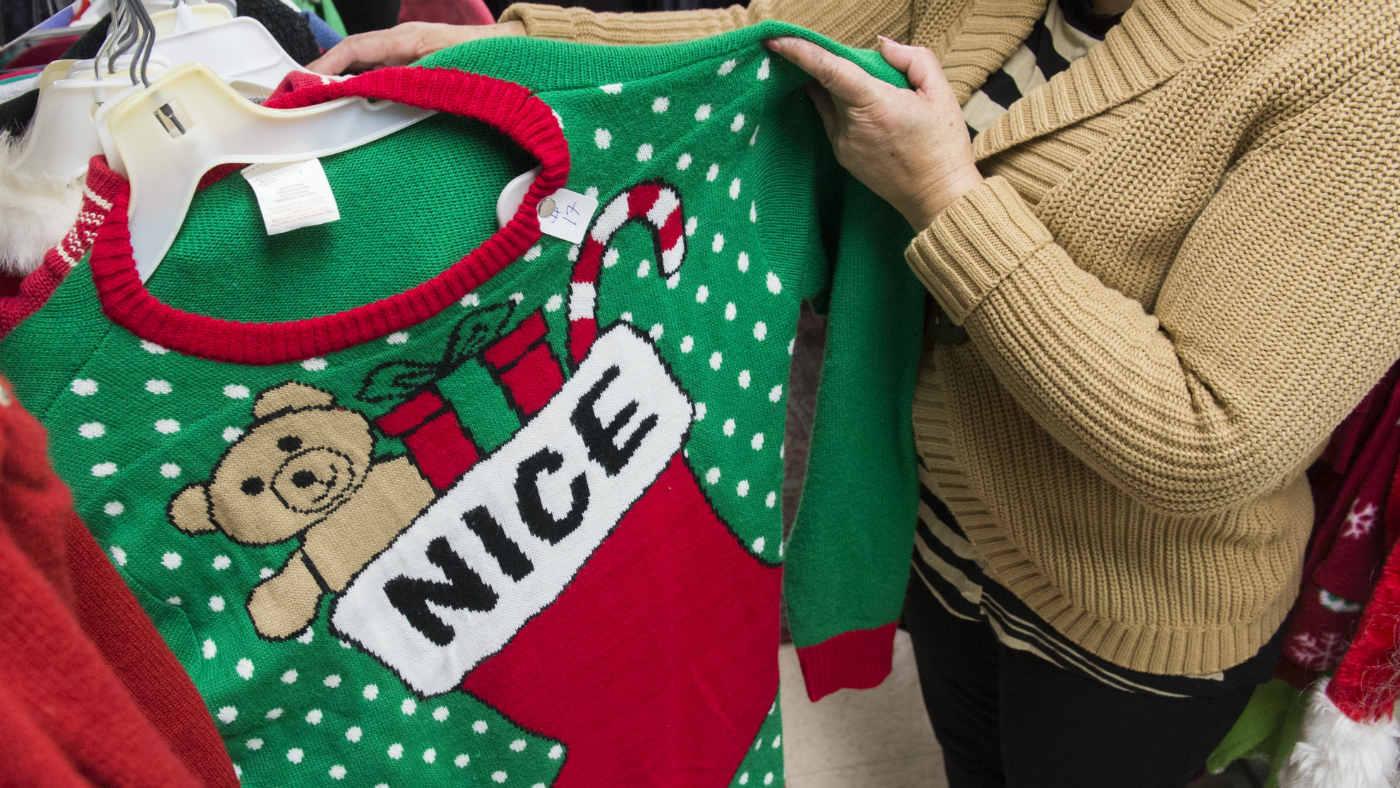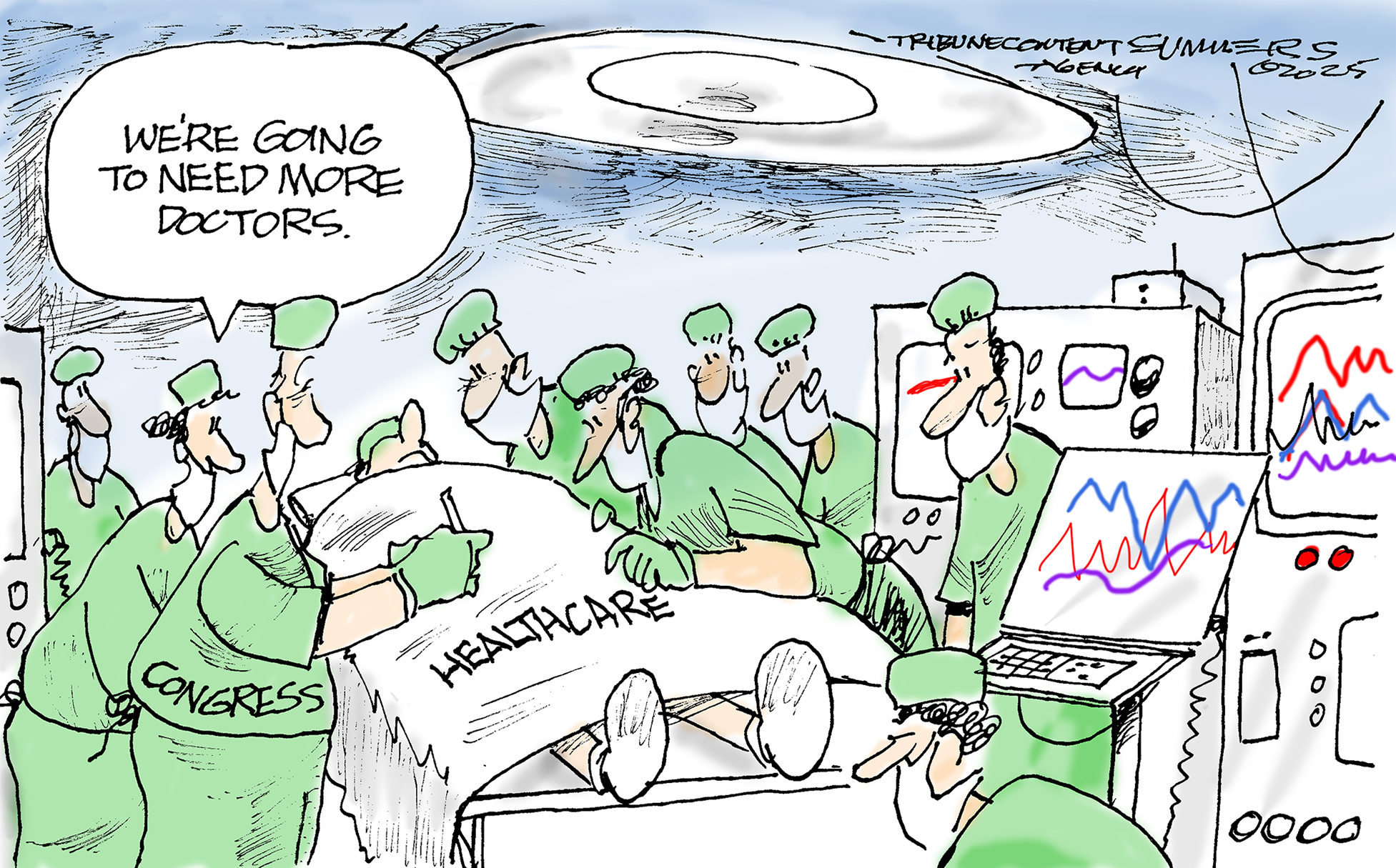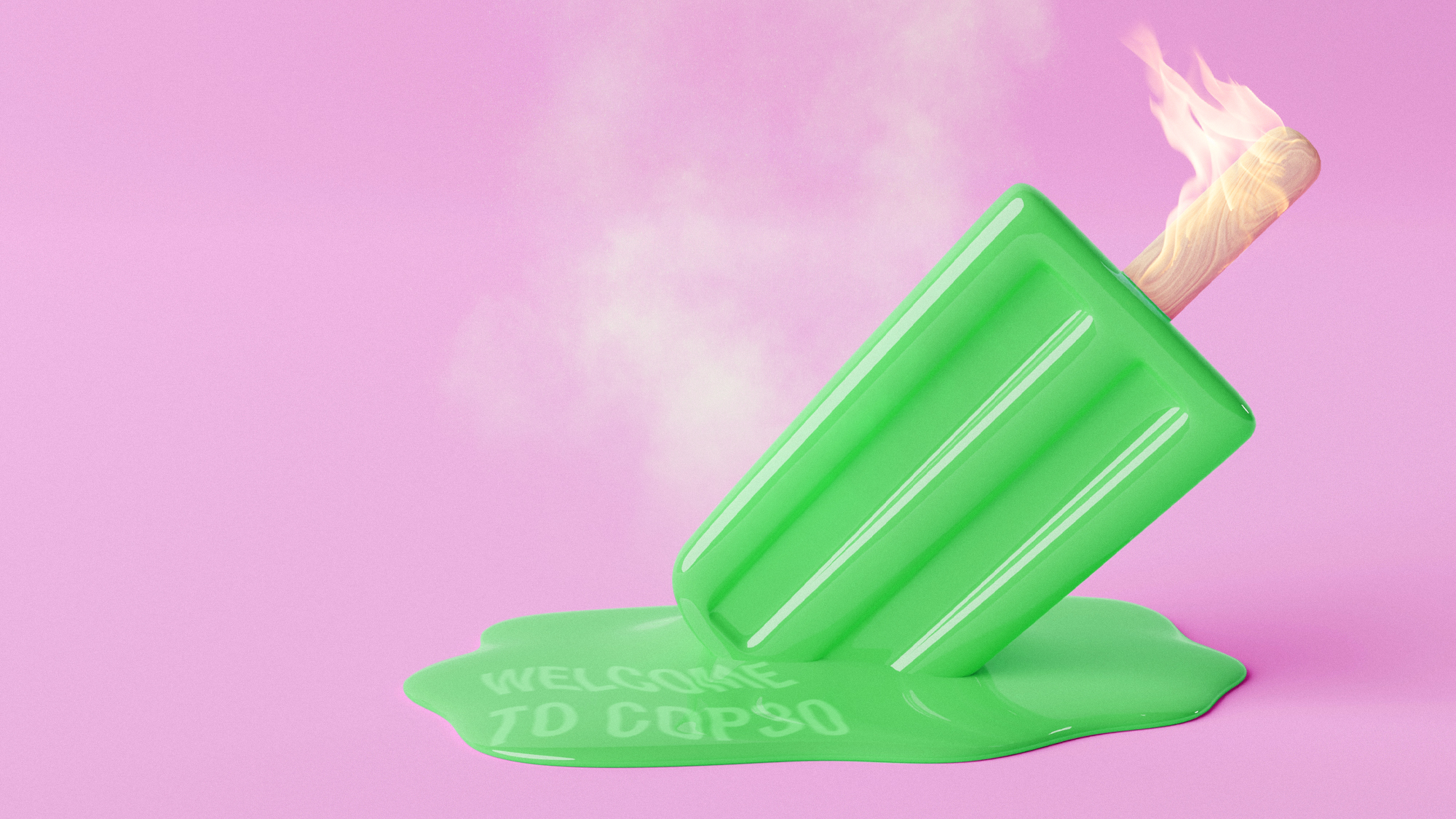Christmas jumpers fuelling pollution crisis
Environmental charity says festive sweaters are ‘one of worst examples of fast fashion’

Christmas jumpers are contributing to the growing plastic pollution crisis, a new study has found.
Environmental charity Hubbub is warning that up to 95% of the festive sweaters on sale in Britain’s shops are made using plastic. And the scale of the problem is vast, with 12 million jumpers “set to be snapped up this year, despite 65 million already languishing in UK wardrobes”, says The Guardian.
The novelty tops are “one of the worst examples of fast fashion” and pose a “major threat” to the planet, according to Hubbub.
The Week
Escape your echo chamber. Get the facts behind the news, plus analysis from multiple perspectives.

Sign up for The Week's Free Newsletters
From our morning news briefing to a weekly Good News Newsletter, get the best of The Week delivered directly to your inbox.
From our morning news briefing to a weekly Good News Newsletter, get the best of The Week delivered directly to your inbox.
–––––––––––––––––––––––––––––––For a round-up of the most important stories from around the world - and a concise, refreshing and balanced take on the week’s news agenda - try The Week magazine. Start your trial subscription today –––––––––––––––––––––––––––––––
The charity analysed 108 jumpers being sold this year by a total of 11 high-street stores and online retailers and discovered that three-quarters of the garments contained acrylic, with 44% made entirely from the plastic fibre.
A 2016 study by Plymouth University found that acrylic was responsible for releasing nearly 730,000 microfibres per wash, five times more than polyester-cotton blend fabric and nearly 1.5 times as many as pure polyester.
Hubbub also surveyed 3,000 UK adults and found that “two-fifths of the festive tops are worn just once during the Christmas period”, the BBC reports. Under-35s are the biggest offenders, with one in three buying a new Christmas jumper every year.
A free daily email with the biggest news stories of the day – and the best features from TheWeek.com
Just 29% of shoppers realised that the sweaters contain large amounts of plastic.
Hubbub project co-ordinator Sarah Divall says consumers are often “unaware” of the damage that their shopping may be causing to the environment, reports Sky News.
“A lot of people are concerned about plastics in the oceans but they don’t realise that the stuff they are wearing also has plastic in it as well,” she said. “You should still enjoy Christmas, no one is saying that this means that you don’t get to have fun.
“There’s a way you can join in - wear a Christmas jumper but swap it or see what you have in the cupboard, or see if you can borrow a friend’s so you don’t have to go out, spend loads of money and buy something new that you’re probably only going to wear once.”
-
 Political cartoons for December 13
Political cartoons for December 13Cartoons Saturday's political cartoons include saving healthcare, the affordability crisis, and more
-
 Farage’s £9m windfall: will it smooth his path to power?
Farage’s £9m windfall: will it smooth his path to power?In Depth The record donation has come amidst rumours of collaboration with the Conservatives and allegations of racism in Farage's school days
-
 The issue dividing Israel: ultra-Orthodox draft dodgers
The issue dividing Israel: ultra-Orthodox draft dodgersIn the Spotlight A new bill has solidified the community’s ‘draft evasion’ stance, with this issue becoming the country’s ‘greatest internal security threat’
-
 Femicide: Italy’s newest crime
Femicide: Italy’s newest crimeThe Explainer Landmark law to criminalise murder of a woman as an ‘act of hatred’ or ‘subjugation’ but critics say Italy is still deeply patriarchal
-
 Brazil’s Bolsonaro behind bars after appeals run out
Brazil’s Bolsonaro behind bars after appeals run outSpeed Read He will serve 27 years in prison
-
 Americans traveling abroad face renewed criticism in the Trump era
Americans traveling abroad face renewed criticism in the Trump eraThe Explainer Some of Trump’s behavior has Americans being questioned
-
 Cop30: is the UN climate summit over before it begins?
Cop30: is the UN climate summit over before it begins?Today’s Big Question Trump administration will not send any high-level representatives, while most nations failed to submit updated plans for cutting greenhouse gas emissions
-
 Nigeria confused by Trump invasion threat
Nigeria confused by Trump invasion threatSpeed Read Trump has claimed the country is persecuting Christians
-
 Sanae Takaichi: Japan’s Iron Lady set to be the country’s first woman prime minister
Sanae Takaichi: Japan’s Iron Lady set to be the country’s first woman prime ministerIn the Spotlight Takaichi is a member of Japan’s conservative, nationalist Liberal Democratic Party
-
 Russia is ‘helping China’ prepare for an invasion of Taiwan
Russia is ‘helping China’ prepare for an invasion of TaiwanIn the Spotlight Russia is reportedly allowing China access to military training
-
 Interpol arrests hundreds in Africa-wide sextortion crackdown
Interpol arrests hundreds in Africa-wide sextortion crackdownIN THE SPOTLIGHT A series of stings disrupts major cybercrime operations as law enforcement estimates millions in losses from schemes designed to prey on lonely users